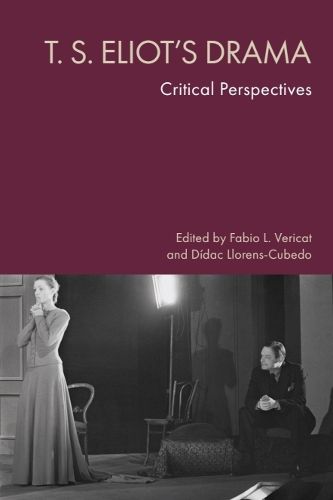Readings Newsletter
Become a Readings Member to make your shopping experience even easier.
Sign in or sign up for free!
You’re not far away from qualifying for FREE standard shipping within Australia
You’ve qualified for FREE standard shipping within Australia
The cart is loading…






T. S. Eliot's writings for the stage have never competed critically on equal terms with his poetry despite his openly stated conviction that the greatest poetry is invariably dramatic and should speak to all audiences. The essays contained in this volume revolve around the question of Eliot's life-long interest in and later development of verse drama incorporating the latest research and archival resources most importantly, his recently published letters to Emily Hale. This book fills a gaping hole in the critical appreciation of Eliot's commitment to drama from the mid-1920s to the end of his career by principally exploring the tensions in his work between the playwright and the poet. It does so by presenting Eliot's drama as a fruitful ground for the newest critical approaches about an artist who has too long been a prisoner of his persona as the leading poet of Modernism.
$9.00 standard shipping within Australia
FREE standard shipping within Australia for orders over $100.00
Express & International shipping calculated at checkout
Stock availability can be subject to change without notice. We recommend calling the shop or contacting our online team to check availability of low stock items. Please see our Shopping Online page for more details.
T. S. Eliot's writings for the stage have never competed critically on equal terms with his poetry despite his openly stated conviction that the greatest poetry is invariably dramatic and should speak to all audiences. The essays contained in this volume revolve around the question of Eliot's life-long interest in and later development of verse drama incorporating the latest research and archival resources most importantly, his recently published letters to Emily Hale. This book fills a gaping hole in the critical appreciation of Eliot's commitment to drama from the mid-1920s to the end of his career by principally exploring the tensions in his work between the playwright and the poet. It does so by presenting Eliot's drama as a fruitful ground for the newest critical approaches about an artist who has too long been a prisoner of his persona as the leading poet of Modernism.